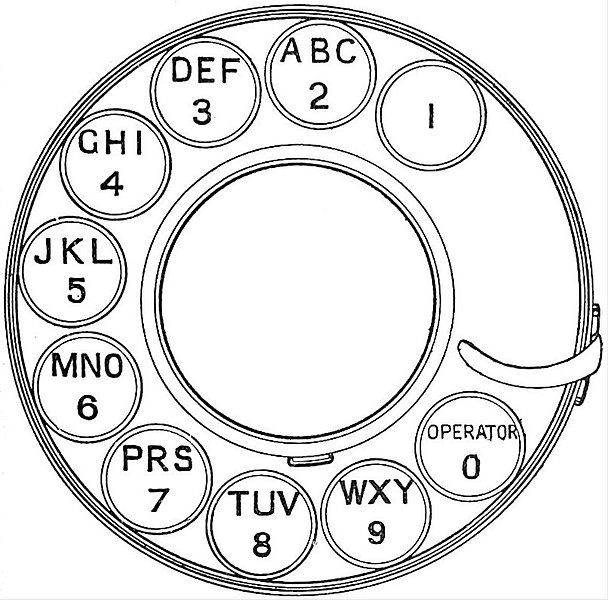It was a crisp, sunny November morning as I stood outside the locked door of Machine Mobile (name changed by me). I had arrived several minutes prior to the store’s scheduled opening time of 10 a.m. As I watched the steady march of SUVs through the Melville-character-named coffee drive-through next door, several other patrons joined me outside the locked door. Without saying a word to one another, we could tell that we had all been burned by 30+ minute wait times at this store in the past, and we thought that arriving early may help us avoid this situation again. Among them were a pair of women whom I assumed were mother and daughter and an older man whom I later found out wanted his phone to stop telling him that he was roaming.
Promptly at 10, a woman opened the door and greeted us, “Welcome to Machine Mobile.” She tapped her badge on a black card reader outside the door, changing the light from red to green, providing even more reassurance that we were allowed to enter. The five of us breathed a collective sigh of relief when we saw that there were three kiosks with staff members, so each of us could be helped right away. Surprisingly, the Collected Works of Edgar Allen Poe in my book bag was never opened that morning.
It was time to explain my odd request to this customer service representative. But first, let me attempt to give a more general explanation.
Over the last few years, I have been discerning the need to make the switch from a “smart” to a “dumb” phone—or, in other words, from a pocket-sized computer that I am tempted to spend two hours a day looking at to a mobile phone. At the Front Porch Republic conference in October, I met real people who have been living their lives without a “smart” phone, and hearing about their experiences helped me build up the courage to switch. Additionally, the hospital system for which I work is in the midst of implementing an instant messaging software that they recommended we enable on our personal devices as well. As a physician who has written about the importance of minimizing distractions and focusing our attention on real human patients, I felt that this was a good time to commit more to my efforts to reduce distraction in my own clinical work. I channeled my inner Wendell Berry in an effort to show that this latest change in a long line of machine progress was in fact “evitable.”
I did some research with the help of a “dumb phone finder” which told me the functions, network compatibilities, and reviews of the available flip phones and other simplicity-oriented devices. I identified one that was an acceptable price, was still able to run one or two of the apps that I actually do need, and was compatible with my network (or so I thought). Perhaps this is where I went wrong, but I even broke my eight-year long streak of not purchasing anything from a well-known ecommerce behemoth named after a South American River (probably the most regrettable part of this endeavor) in order to acquire this device that would help me make the long awaited move to dumb city. I made sure to purchase the “unlocked” version that according to the website was unlocked to work on all networks. You can see where this is going.
Let’s return to my morning at Machine Mobile. I placed my new and old phones next to each other on the counter and explained my request. My representative understood correctly that I wanted to switch my mobile service from the shiny, beautiful, popular rectangle to the folding, obscure, and unpopular rectangle with tactile buttons. She started to look for my information or something on her computer, and I waited while she did this. Four TVs, all displaying highlights of the previous night’s NFL game, served to distract me from the absurdity of modern life and my own millennial hyperawareness. Sensing that I was the one who was absurd, the woman who was helping me went to fetch another employee from the back room.
This employee, presumably the manager or the next rung up the ladder, confirmed my request before telling me that it was impossible. The phone that I had purchased was not compatible with my Machine Mobile plan. I clarified that I had purchased an “unlocked” phone that was supposed to work on any network. This manager, using the language of the Machine including terms like “interface” and “systems,” explained that the phone that I had purchased was not an option. He informed me that they in fact have only one flip phone that is compatible with their network. He showed this phone to me. It cost over $100 dollars and looked as if it was already falling apart (he reassured me that they were waiting on a replacement demo since this one’s screen was not consistently working). I politely declined the option that was shown to me. I thanked both employees for helping me and walked out defeated, smartphone in my pocket, radiating both 5G and submission into my emasculated being.
Do you want to ditch your smartphone, too? You can try, but the Machine’s answer is likely to be a resounding “no.” I hope that your mobile provider is more accommodating than mine (a word of caution: the fact that their advertising campaigns reassure you that you are in charge does not make this the case). Maybe someday I will maneuver my way out of the chokehold of constant stimuli and shiny touchscreens, but it was reinforced to me today that this is strongly discouraged. My mobile provider in particular makes buying anything other than a smartphone so unappealing and inconvenient that even a determined, reasonable, and competent (I may be giving myself too much credit) person is set up to reject this option. Since my wife and I are currently in a one year buy-one-get-one plan for our cellular data through Machine Mobile, I will probably wait until next year to reconsider switching to a simpler mobile device.
On a deeper level, regardless of what mobile device I carry with me, I am still involved in the modern struggle of learning to filter the noise of the machine and attempt to live an integrated, human life. Perhaps my future switch from a “wretched rectangle” (to borrow Bill Kauffmann’s term from his conference presentation) to a dumb phone will assist me in this struggle. Until then, I will continue the difficult practice of choosing to put my shiny and hyperpalatable rectangle out of sight, growing in virtue (God willing), and trying to live as a human in a machine age.
Image credit: via Wikimedia Commons




6 comments
Sophia
Two phones might be of help and of interest: https://www.thelightphone.com/ and https://techless.com/pages/wisephone-ii.
Carol
Dear Will Lyon,
I really like the way you think and write.
Thank you for this great piece!
Steven
Hi Martin,
I suspect the HTTPS issue you’re having is the same one my wife had on her similar vintage Macbook. The fix is actually really simple and I’d recommend doing it – https://www.tenseg.net/blog/2021/10/10/installing-the-new-lets-encrypt-root-certificate/. It took me far longer than I’d like to admit to find that and install it on her machine.
Martin
Thanks. I’ll try that. Meanwhile here’s more evidence of planned obsolescence:
https://www.bbc.com/news/technology-51413724
Martin
Smooth enough to install but the problem is not expired certificates (which I’ve seen even from reputable sites that forgot to update). Keychain Access on my 2012 MacMini has a ton of certs from 2022 and 2023.
The problem is “security” protocols built into new software versions, which are then “demanded” by various web sites who message me that “your browser is not supported”. Firefox is generally supported on older machines (backwards compatibility), but it has some quirks.
And within Apple itself, they push for “compatibility” of all their apps with newer operating systems. For OS, they warn if your old hardware might not support the upgrade, but the BBC article suggests that they “forgot” to warn about iOS upgrades on older iPhones.
Martin
I have a mid-priced iPhone which is full of apps I don’t need and can’t delete. If I connect it to my 2012 Apple computer, I’m told that some key features like iTunes backup of my address book won’t work anymore unless I upgrade the Operating System. But I can’t upgrade the OS any further on such an old computer.
Meanwhile, the Apple-encouraged browser Safari tells me that some web sites are not accessible unless I update Safari (updated OS is required) “for security”. So I use Firefox, which has free updates but balks at https prefixes.
It’s all a planned obsolescence treadmill. Every model has more bells and whistles, along with more assumptions of “we know what you tech-savvy young people want for smoother usage” — for example, Clear History and Web Site Data (to reduce ads tracking me) for Safari in Settings asks if you also want to Close Tabs. Why would I *not* close the tabs if I’m clearing all the history???
Worth 3 minutes to watch this (longer versions are also on Youtube):
https://www.youtube.com/watch?v=fwNYjshqZ10
Comments are closed.